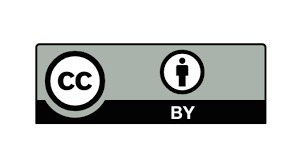Sistema de indicadores de gestión en la calidad y productividad en la docencia universitaria
Sistema de indicadores de gestión en la calidad y productividad en la docencia universitaria
Main Article Content
The research object of this work develops the theoretical aspects of the constructs quality and productivity in university teaching. It aims to design and implement a system for measuring quality and productivity in university teaching, based on new information and communication technologies (NICT), using indicators, with application in the Web environment. The research combines the two traditional approaches, the quantitative paradigm with the purpose of obtaining regularity patterns, answering the research questions and checking the hypotheses, and the qualitative level of technique and information capture strategy, with interviews In depth, and also at the level of data analysis, and interpretation of the results in the reduction, arrangement and transformation of the same, in order to obtain the experience of the four age groups of educators; According to what is contemplated in the thesis of the complementary diversity of the different research paradigms of the social sciences and education. The results in the two methodologies are used jointly for the design and implementation of a system for measuring quality and productivity in teaching, supported by new information and communication technologies, in a Web environment, using indicators.
The implementation of the system will help in the formulation, execution and follow-up of programs, aimed at the training of academic staff to contribute to improving the quality and productivity of teaching in the university.
Downloads
Article Details
Acevedo, D. (2004). Metodología para la generación e interpretación de indicadores de gestión y resultados. Caracas, Venezuela: Ministerio de Educación Cultura y Deportes.
Alarcón, N. & Méndez, R. (2000). Calidad y productividad en la docencia de la educación superior. Recuperado el 2 de septiembre de 2003, de http://www.monografias.com/trabajos10/ponenc/ponenc.shtml
Albornoz, O. (1997). La cuestión de la productividad, rendimiento y competitividad académica del personal docente y de investigación en América Latina y el Caribe. En L. Yarsabal (Ed.), Educación Superior en el siglo XXI: Visión de América Latina y el Caribe (pp. 391-421). La Habana, Cuba: CRESAL/UNESCO.
Beltrán, J. (1998). Indicadores de gestión. Santafé de Bogotá, Colombia: 3R editores.
Campbell, D. & Stanley, J. (1995). Diseños experimentales y cuasiexperimentales en la investigación social (M. Kitaigoradzki & J. C. Orries e I. Bars, Trads.). Buenos Aires, Argentina: Amorrortu. (Trabajo original publicado en 1966).
Hernández, R. (2002). Contribuciones al análisis estadístico. Merida, Venezuela: Universidad de Los Andes, Facultad de Ciencias Jurídicas.
Hernández, R., Fernández, C. & Baptista, P. (2001). Metodología de la investigación (2a. ed.) México: Esfuerzo.
Padrón, J. (2000). Seminario de epistemología y educación. Manuscrito no publicado, Universidad Pedagógica Experimental Libertador. Rubio, Venezuela.
Martínez. M. (1999). Método hermenéuticodialéctico en las ciencias de la conducta. Anhtropos, 10 (18), 85-111
Rey, D. (2004). La gestión tradicional y la gesctión por procesos. Recuperado el 25 de julio de 2005, de http://www.gestiopolis.com/recursos4/docs/ger/gestitra.htm
Rusque, A. (1999). De la diversidad a la unidad en la investigación cualitativa. Caracas, Venezuela: FACES/UVC.
Salkind, N. (1999). Métodos de investigación (3a. ed.). (R. Escalona, Trad.). México, México: Prentice Hall Hispanoamericana. (Trabajo original publicado en 1998).
Sánchez, J. (2001). Apuntes de estadística. Manuscrito no publicado. Universidad Nacional Experimental del Táchira. San Cristóbal, Venezuela.
Scheaffer, R., Mendenhall, W. & Ott, H. (1987). Elementos de muestreo. (G. Sánchez & J. Gómez, Trads.). México, México: Grupo Editorial Iberoamérica. (Trabajo original publicado en 1986).







